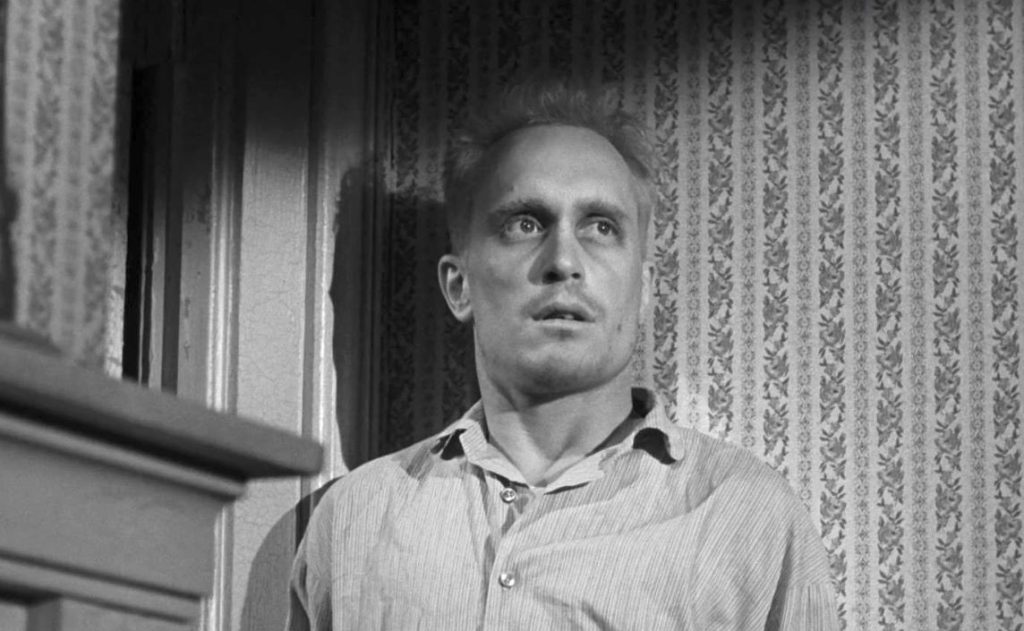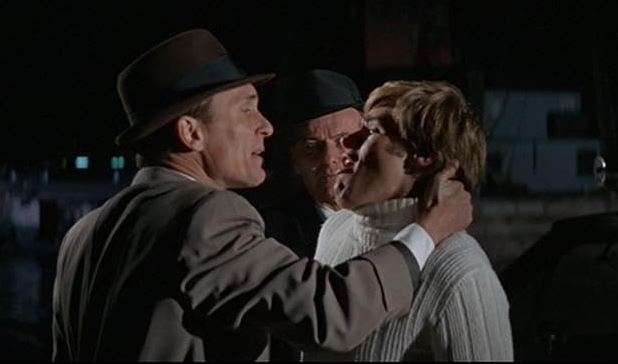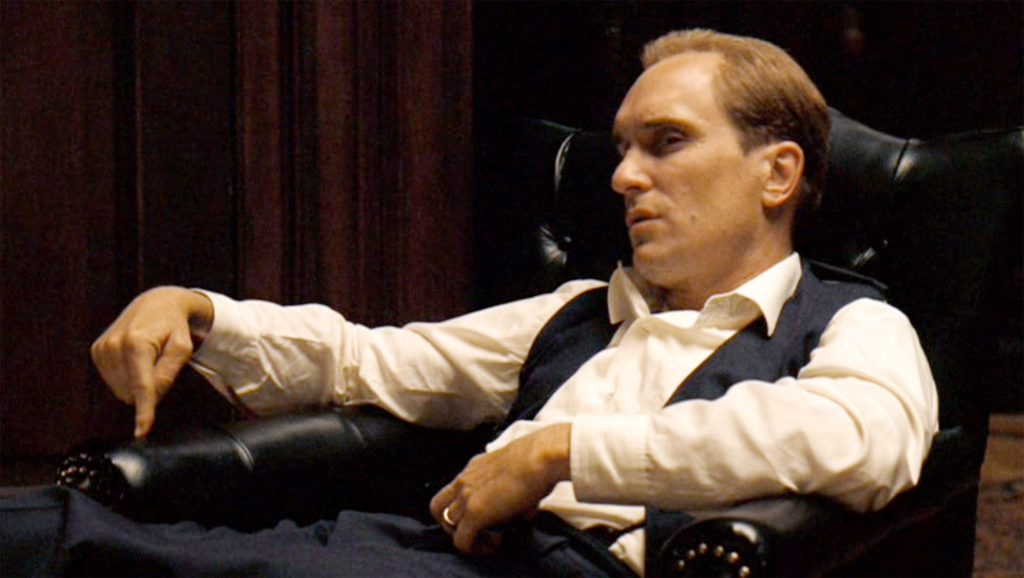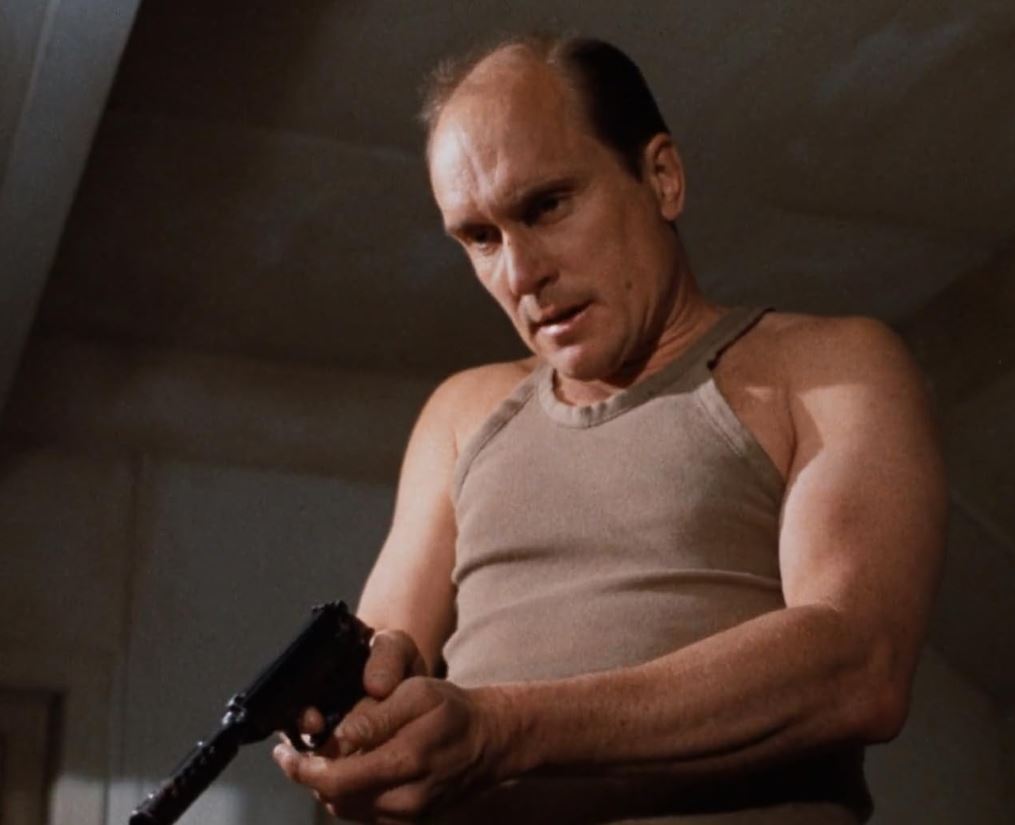
Despite a career lasting more than six decades, a hand in some of the most luminous films of all time and a Best Actor Oscar, Robert Duvall remains curiously unfamous. I suspect if you showed his picture to twenty people in the street, hardly anyone would identify him. Perhaps this is because he prefers supporting roles to leads. Plenty of good work can be done in the shadows, eh? Or maybe his low profile is down to an avoidance of controversy, obviously preferring to let his work speak for itself rather than taking to social media to air his views on gun control, abortion and transgender surgery. Then again, perhaps he simply has an unmemorable face. One thing he has excelled at, though, is snagging work alongside the biggest stars of the day. From Gregory Peck and John Wayne to Steve McQueen and Tom Cruise, you’ll usually find Bobby doing most of his sterling work just off center or loitering in the background.
Debut: To Kill a Mockingbird (1962)
Short of playing a corpse, Duvall couldn’t have had a much easier debut. All right, he had to work a bit harder than his staring-priest-on-a-swing cameo in 1978’s brilliant Invasion of the Body Snatchers, but he still doesn’t have to say a word in this adaptation of Harper Lee’s much-loved novel. He plays Boo Radley, supposedly the incarnation of the local kids’ fears. They think he’s a heavily scarred, yellow-fanged, six and a half feet tall bogeyman that only comes out at night to eat raw squirrels or stab people with scissors. Sounds a bit like my old PE teacher, Mr MacKenzie. Anyhow, it’s a disappointment when we finally meet Boo ten minutes from the end only to get a blank Duvall hiding behind a bedroom door. Still, as debuts go, I think most actors would have been happy to get started in a revered (but occasionally mock-worthy) Oscar-winner that explores entrenched racism in the Deep South.

Gay stuff: Nightmare in the Sun (1965) & The Detective (1968)
Nightmare is amusing, desert-set rubbish that clocks in at less than eighty minutes. Duvall is a surly, meddlesome biker trying to hang onto the remnants of his hair while riding around California with his boyfriend. He takes an interest in a reward for the capture of a murderer, believing he can smash the fugitive to a ‘bloody pulp’ because he does tough things like smoke at a gas station and loudly object to someone drinking milk in a pub (“Milk! That is the end!”)
How do we know Duvall and his partner are gay? Well, I’ve never seen bikers dress like these two. No grimy leathers and oil-stained boots here. Oh no, sir. This pair prefers cardigans. When his mate threatens to split, Duvall gets all emotional. “You’re with me!” he cries. “Now when we get the reward money, you can get all the things you want. The best food, fancy hotel. We’ll have what we please because when you have money, nobody asks questions. Right?” The boyfriend (Dirty Dozen’s Richard Jaeckel) doesn’t appear too impressed, leaving Duvall to try to beat him up with a length of chain before giving his bike a few whacks. “You’re not leaving me!” he repeatedly cries while sobbing on his knees.
If this sounds awful, you’d be right. Nightmare not only gives an early indication of Duvall’s pronounced difficulty in playing tough, but shows that great actors have to learn their trade like anyone else. Frankly, our future Oscar winner is poor. What’s more, his role in proceedings is irrelevant.
Saying that, Nightmare did entertain me until a late collapse into mawkishness, depicting a time when drunk driving and giving your wife a backhander were the norm. It’s also got a pleasing cast that includes a freewheeling Ursula Andress in her prime. She’s so desirable that at one point I climbed the wall and ended up licking the ceiling, a response I still don’t understand.
The noir-tinged The Detective is an action-lite failure, very much of its time and yet somehow out of time. Starring a dour Frank Sinatra, it tries to be progressive and forthright by tackling capital punishment and police brutality as well as (the then) taboo stuff like homosexuality and nymphomania. However, it ends up dated, ridiculous and unintentionally funny.
The gay son of a prominent businessman is found lying on the floor of his swanky apartment with his dick cut off. Frankie boy is assigned to investigate with the gay-hating, ‘miserable son of a bitch’ Duvall as one of his junior detectives. Duvall doesn’t have anything to do in the first half-hour, but starts perking up when a load of gay boys dressed in fetching pastel colors are rounded up in the back of a truck in a bid to find the murdered man’s roommate. Frankie is the straight arrow, liberal voice of reason (“These people are not murderers”) but Duvall prefers to shout, manhandle them and even mockingly lisp. His contempt earns him a punch in the gut from Frankie, a humiliating rebuke that doesn’t cool his (or the department’s) homophonic ardor one bit.
Duvall is all right but stuck with a one-note character that goes nowhere, leaving the viewer to chew over some of the other performances, such as a ludicrous Lee Remick, a wonky Jacqueline Bisset, and a gay guy’s overwrought interrogation room breakdown that is shake your head bad. I suspect actual homosexuals viewing this one will seesaw between contempt and laughter. Whatever the case, The Detective (despite its good intentions) falls flat on its dreary face.

Crime: The Godfather (1972) & The Outfit (1973)
Duvall took on the role as the Corleone family’s consigliere in the seminal Godfather. I’d argue it was the first time in his career that his potential was realized after a decade of somewhat underwhelming appearances in often well-regarded films. His character Tom Hagen (like just about everyone else in Coppola’s masterpiece) is memorable. He’s a composed, obviously intelligent counterpart to the likes of the hot-headed Sonny whether he’s getting kidnapped by a rival crime family or trying to make a horse-owning Hollywood producer see sense. Godfather instantly catapulted co-star Al Pacino into the big time, but didn’t quite provide the same springboard for Duvall (or James Caan). Still, Duvall was now high profile and there’s only one thing movie stars do: they star in movies, but Duvall’s attempts to be a leading man never really built up a head of steam.
Things got off to a great start, though, with the well-directed The Outfit. This tautly written effort boasts an excellent cast and is nicely paced with frequent bursts of well-staged action. It also has a melancholy, fatalistic feel, as if we’re watching events that can’t be stopped because of the code that some men live by.

Duvall is a newly released ex-con by the name of Macklin, none too happy that a pair of hit men has executed his brother. Why the Mob-ordered killing? Because Macklin and his bro inadvertently knocked over a Mob-owned bank. Once he discovers the truth, Macklin sets out with his old partner Cody (Joe Don Baker) to extract a quarter of a million dollars worth of retribution from the gangsters.
Macklin is a terse anti-hero. He’s smart, organized and operates with bags of chutzpah in a world filled with hot cars, card-playing Mafiosi, duplicitous broads, plentiful shots of whisky, gun salesmen, hatchet-killed dogs, and women being slugged cold or used as a human ashtray. Indeed, The Outfit’s presentation of women and how they fit (or don’t fit) into an intensely masculine world is most interesting. Macklin’s girl wants him to quit the revenge mission and hide like his murdered brother, but he can only tell her: “I can’t get out.
They won’t let me and I don’t want to. I’ve gotta settle this thing one way or another and once and for all. Maybe you don’t understand that, but that’s the way it’s gotta be.” It’s a shame Duvall looks like a harmless, middle-aged businessman (especially when Baker is so convincing alongside) but I’ve never really bought our main man as a tough guy. Still, this is a minor criticism because the hard-boiled The Outfit is otherwise terrific.
For Duvall Part Two, Click here
Leave a Reply